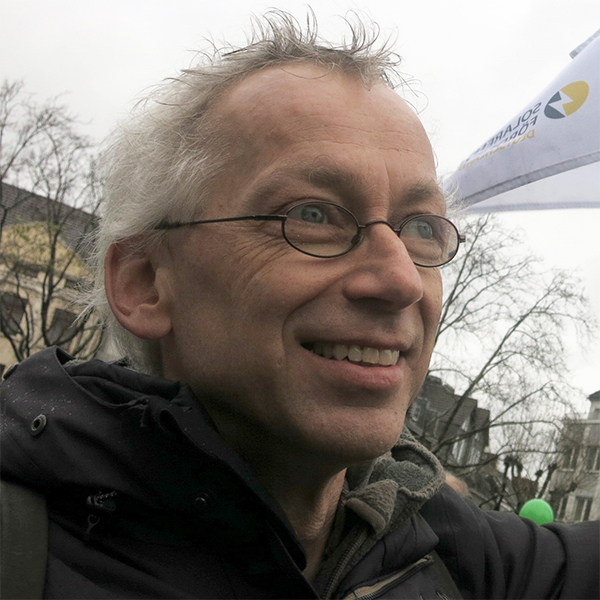Centralized and Decentralized Paths Towards Energy Transition
Abstract:
Should the transition towards a power supply consisting of 100 % renewable energies be organized in a centralized manner – super grids, big offshore wind parks, huge storage devices – or in a decentralized way, wherein electricity is produced and stored (if necessary) at the very places where it will be consumed? Investigating technological, economic, and political implications of the question, this contribution will argue for the decentralized variant. Scarce financial resources should be allocated to decentralized structures, for reasons of political self-determination, distribution of added value, the interests of those commissioned with the process, and – most important – fault tolerance: the range of problems which might occur within the technological, the economic, or the political realm.
Biographical Sketch
Rüdiger Haude is a social scientist and historian. As a “private lecturer” (Privatdozent), he teaches Cultural History at the Historical Institute of RWTH Aachen University. He has published several books and many essays, particularly on different aspects and cases of political symbolization. Since October, 2014, he is employed as Public Relations Agent of Solarenergie-Förderverein Deutschland.
